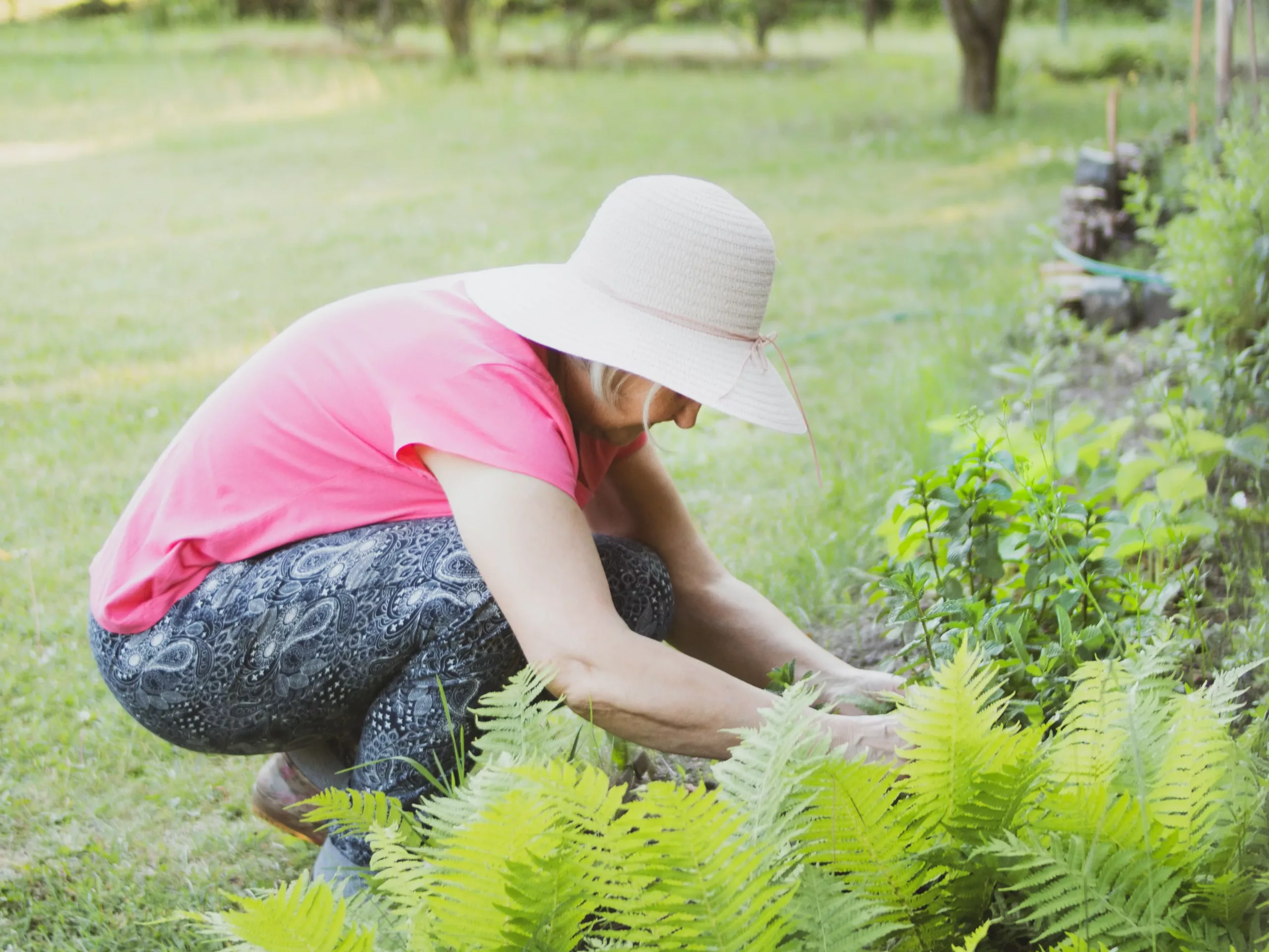The Benefits of Gardening for Mental and Physical Health
Last Updated: 08 Aug 2023
Uncategorized
Engaging with the outdoors is in our “nature”
Spending time in nature can benefit your mental and physical health. But did you know research suggests that exposure to natural environments can reduce stress, anxiety, and depression levels while also improving mood and self-esteem?
“Outdoor activities can impact several aspects of our life,” says Endeavors Regional Director of Quality Management and Health Informatics Jason Simmons. “Gardening and playing outdoors can improve mental well-being by improving our mood, boosting our self-esteem, improving attention/focus, as well as providing physical exercise. Gardening or playing provides muscle activity that can improve strength and promote positive circulation throughout your body.”
Let’s dive into the specific ways dirt and the great outdoors can help us manage and improve our physical and mental well-being.
Dirt: Nature’s Mental Health Medicine

Whether it’s the soil from your backyard, your local nursery, or even the hardware store, dirt contains microbes with some rather impressive antidepressant qualities. When we garden or play in the dirt, we stir up these microbes and the chemicals they contain actually boost our mood.
Bonnie L. Grant, Certified Urban Agriculturist, says, “Soil microbes have been found to have similar effects on the brain and are without side effects and chemical dependency potential.”
In other words: Dirt is nature’s natural wonderdrug!
Now, this is not to say that dirt solves everything. Definitely don’t skip your regular doctor’s visits for a day of planting onions. But if you’re looking for small and easy ways to boost your mental wellness, researchers have found that the bacterium in the soil can stimulate serotonin production in our brains, making us happier and more relaxed. Since a lack of serotonin has been linked to anxiety, depression, and other mental disorders, dirt has come to be regarded as a surprising ally for people experiencing mental health issues.
Gardening: The Dark Horse Of Outdoor Workouts

Getting our hands dirty, so to speak, is beneficial beyond the microbial sense. Have you ever noticed that you tend to breathe more deeply outdoors? When we get outside, the fresh air increases our oxygen levels, improves our digestion, and releases muscle tension.
Then there’s the matter of sunlight, which lowers our blood pressure and increases Vitamin D levels. Not to mention, if you’re tending a garden, you’re going to burn a lot of calories and build muscle strength from hauling bags of mulch, digging holes, and raking!
Mentally, the act of gardening can serve as a wellness practice. Rhythms are soothing to nearly all living creatures, and the Mayo Clinic Health System reports that the routine structure of planting, watering, weeding, and harvesting has been shown to lower stress and anxiety levels.
Playing In The Dirt: A Health Activity For All Ages!

As parents, we all want to raise happy, healthy children. While common sense tells us that getting “dirty” is unhealthy, unsafe, and undignified, many studies show that playing in the dirt is a critical part of healthy child development, both physically and emotionally.
Why? Playing in the dirt and being outside can also expose your child to healthy bacteria that can boost their immune system and help protect them from threatening bacteria and diseases.
An article by Michigan State University Extension explains, “Being exposed to some dirt or simple bacteria helps train your immune system on how to react to foreign things entering your immune system. The dirt and foreign substances stimulate your immune system to become more tolerant and help fight off the bad.”
Unstructured play in the grass and dirt can also boost a child’s confidence, foster creativity and imagination, and enhance their sensory functions.
“Ensure your child is dressed for the outdoor weather,” Simmons advises. “Remember, it doesn’t have to be hot for the sun to have an impact on your child’s skin, so ensure the skin is protected by clothing and/or sunscreen as appropriate and recommended by your pediatrician.”
Don’t have a backyard? No problem!
We’re not saying growing plants is easy. In fact, it can be a long journey of trial and error between planting a seed and harvesting a crop. But gardening is one of the most accessible wellness activities. Gardening is an activity that children and adults can enjoy in the country, the suburbs, or the city. If you don’t have access to a private yard or garden, you can still get your feel-good fix of dirt and microbial goodness. Many cities have community gardens that rent out plots or offer volunteer opportunities. If you’re tight on space, window boxes and patio plants can do the trick.
If gardening isn’t your cup of tea, don’t worry. There is no end to how you can engage with nature – from building sand castles at the beach to walking nature trails to visiting a local botanical garden. “Most experts will say engaging with the outdoors is fundamental for human beings,” says Simmons. “Many studies point to the positive impacts Nature provides us such as increased happiness, improved well-being, positive affect, social interactions, spirit enhancement, and more.”
About Endeavors
Endeavors is a longstanding national non-profit that provides an array of programs and services in support of children, families, Veterans, and those struggling with mental illness and other disabilities. Endeavors serves vulnerable people in crisis through innovative personalized services. For more information, please visit endeavors.org.
